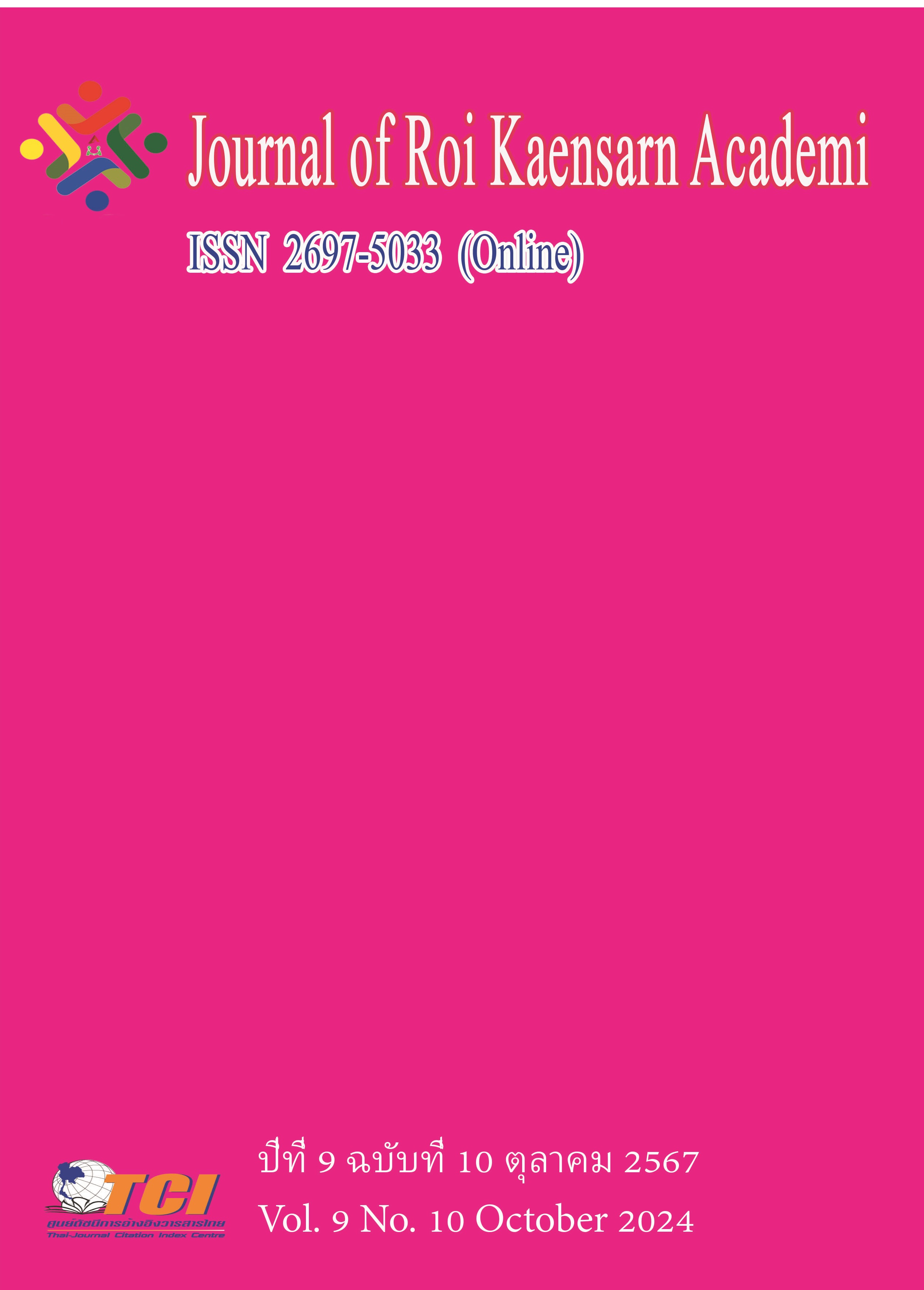The New Path for Cultivating Leadership among College Students in Local Normal Universities: Practical Exploration in H University Based on Transformational Leadership Theory
Main Article Content
บทคัดย่อ
The objectives of this research were: (1) To explore the leadership development practices at H University under the guidance of transformational leadership theory.(2) To analyze the improvement in students' leadership qualities after participating in transformational leadership courses.(3)To propose a new pathway for leadership development suitable for local normal universities in China to promote future leadership education reform.
The research was mixed methodology design which were comprised of quantitative and qualitative research. The population composed of 4736 students from the teacher training program at H University, with 367 students selected as a sample using random sampling. The researcher determined sample size with Krejcie and Morgan table (1970).Firstly,the researcher will conduct a leadership competency survey aimed at evaluating the improvement in students' leadership qualities after participating in transformational leadership courses. The total population is 4,736 students, with a sample size of 367 students.Then,the researcher analyzed the questionnaire data by using various methods, including mean score analysis, standard deviation analysis, minimum and maximum scores analysis, overall trends analysis, SWOT analysis, and SPSS statistical analysis.
The research findings were: (1) In China, there is insufficient emphasis on college students' leadership education. Local normal universities have issues such as an imperfect curriculum system for leadership cultivation. (2) Under the guidance of transformational leadership theory, H University has carried out a variety of practical explorations to effectively improve students' leadership qualities. (3) H University has achieved some results in integrating the transformational leadership theory into curriculum design and practical teaching but still faces challenges like theory-practice integration, mentor resources, evaluation systems, student engagement, and cultivation model innovation.There are three suggestions: (1) Strengthen university-enterprise cooperation. (2) Refine the evaluation system.(3)Explore "Internet + leadership education" models.
Article Details
เอกสารอ้างอิง
Bass, B. M., & Steidlmeier, P. (1999). Ethics, character, and authentic transformational leadership behavior. The Leadership Quarterly, 10 (2), 181-217.
Bass, B. M. (1990). From transactional to transformational leadership: Learning to share the vision. Organizational Dynamics, 19 (3), 19–31.
Bass, B. M., & Riggio, R. E. (2006). Transformational leadership (2nd ed.). Lawrence Erlbaum Associates.
Bircham-Connolly, H., Corner, J., & Bowden, S. (2005). An empirical study of the impact of question structure on recipient attitude during knowledge sharing. Journal of Knowledge Management, 32 (1), 1–10.
Brown, F. W., Bryant, S. E., & Reilly, M. D. (2006). Does emotional intelligence—as measured by the EQI—influence transformational leadership and/or desirable outcomes? Leadership & Organization Development Journal, 27 (5), 330–351.
Cui, Y. J., & Wang, B. X. (2015). College students' leadership: The treasure in the ivory tower. Heilongjiang Higher Education Research, 11, 35–40.
Heifetz, R. A., & Laurie, D. L. (1997). The work of leadership. Harvard Business Review, 75 (1), 124–134.
Kotter, J. P. (1990). A force for change: How leadership differs from management. Free Press.
Northouse, P. G. (2018). Leadership: Theory and practice (8th ed.). Sage Publications.
Senge, P. M. (1990). The fifth discipline: The art and practice of the learning organization. Doubleday.
Sun, H. (2019). Exploring the relationship between personality traits and leadership styles among Chinese college students. International Journal of Educational Management, 33 (4), 799–813.
Wang, J. (2014). The influence mechanism of college students' leadership on creativity: An empirical study based on structural equation model. China Higher Education Research, (4), 60–65.
Wang, R. (2024). College students' leadership: Exploration of the era connotation, generation mechanism, and cultivation path. Journal of Heilongjiang Vocational Institute of Ecological Engineering, 37 (1), 92–96.
Yukl, G. (2013). Leadership in organizations (8th ed.). Pearson Education.
Zhang, L., & Zhou, X. (2020). Leadership development programs in Chinese higher education: A review and implications. Higher Education Research & Development, 39 (5), 879–894.

